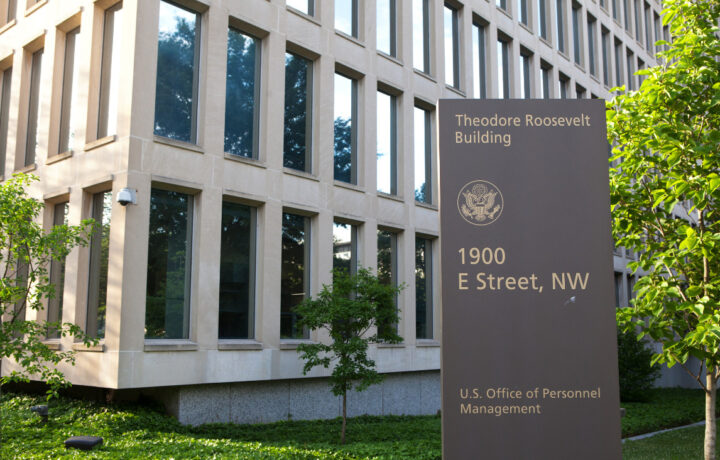The Office of Personnel Management plans to expand suitability decisions historically reserved for federal job applicants to include current employees. The proposed rule was published in the Federal Register on June 3.
The rule states, “The purpose of the proposed rule is to improve the efficiency, rigor and timeliness by which OPM and agencies vet individuals for risk to the integrity and efficiency of the service, and to make clear that individuals who engage in serious misconduct while employed in Federal service are subject to the same suitability procedures and actions as applicants for employment.”
Suitability Determinations
Suitability and fitness determinations examine character or conduct that may harm the integrity or efficiency of the service, such as criminal or dishonest conduct, and deception or fraud in examination or appointment.
If the suitability determination is unfavorable, an adjudicator determines the appropriate action. OPM’s regulations define a suitability action as:
- Canceling eligibility
- Removing eligibility, or
- Canceling reinstatement eligibility
The adjudicator’s objective is to establish a reasonable expectation that employment or continued employment of an individual either would or would not protect the integrity and promote the efficiency of the service. When there is a reasonable expectation that employment would not do so, the individual should be found unsuitable or unfit.
Suitability Objective
According to the Federal Register posting, “Suitability interests and objectives apply equally to applicants for employment and current Federal employees, regardless of the employment status as an appointee or employee.” It also states, “Employees who engage in serious misconduct while in the Federal service are equally as unsuitable for Federal employment as applicants who engaged in serious misconduct before applying for Federal employment.”
Suitability Actions for Post-Appointment Conduct
OPM is proposing to establish in regulation its authority to take suitability actions against competitive service and career Senior Executive Service appointees and employees based on post-appointment conduct related to any of the suitability factors.
As noted in the Federal Register announcement, these proposed regulations would expand OPM’s existing authority to take suitability actions against employees for conduct falling under specific suitability criteria.
OPM Clarification
Acting Director Chuck Ezell stated in their June 2, 2025 memorandum, “For too long, agencies have faced red tape when trying to remove employees who break the public’s trust. This proposed rule ensures misconduct is met with consequences and reinforces that public service is a privilege, not a right.”
According to the OPM’s acting director, “It has been easier to bar an applicant from federal employment with past serious misconduct than it has been to address a current employee committing the same misconduct. This proposed rule eliminates this disparity by extending the same suitability standards and tools used during the hiring process to address post-appointment conduct.”
Key Reforms
- The rule authorizes OPM to take suitability actions against current employees for misconduct after hiring, applying the same standards used in initial hiring vetting.
- Agencies will have broader authority to flag conduct such as deliberate tax evasion, unauthorized disclosure of sensitive information, and other behavior inconsistent with the public trust.
- The rule allows federal agencies to refer cases to OPM to request that a suitability action be taken against an employee for post-appointment conduct.
- The rule resolves a long-standing gap by clarifying that unsuitable individuals may be removed for post-appointment conduct.
Summary
Agencies have 30 days to reply to the proposal, and all submissions should identify their comments on the regulatory text by subpart and section number. This is the first stage, and OPM’s review, including revisions, could take months before issuing the final rule.
The federal government has always been able to remove those who engaged in serious misconduct; this new directive aims to fast-track those removals.




